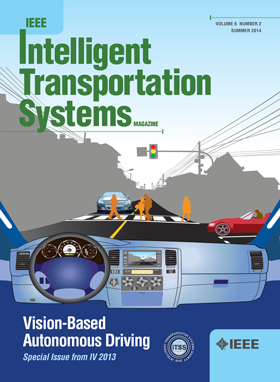FedShip: Federated Over-the-Air Learning for Communication-Efficient and Privacy-Aware Smart Shipping in 6G Communications
IF 7.9
1区 工程技术
Q1 ENGINEERING, CIVIL
IEEE Transactions on Intelligent Transportation Systems
Pub Date : 2024-10-07
DOI:10.1109/TITS.2024.3468383
引用次数: 0
Abstract
Maritime and shipping are unambiguously the cornerstones of the global economy and transportation. To improve efficiency, maritime sector activities are focused on the realization of Smart Shipping (SMS), leveraging 6G Communications, Energy Efficiency (EE) and Machine Learning (ML). However, conventional Centralized Machine Learning (CML) cannot be easily applied in the maritime, mainly due to the drawbacks: (i) prohibitive data communication overhead and bandwidth limitations, since CML requires centralization of massive data through transmissions from heterogeneous sources, (ii) excessive energy consumption associated with massive data transfers, (iii) remarkable transmission errors due to harsh propagation conditions, and (iv) data privacy violation, since the data carries sensitive and commercial information. This article proposes a two-fold Federated Learning (FL) scheme (FedShip) to improve the privacy, EE and communication-efficiency of future 6G maritime networks. FedShip uses the Over-the-Air computation (AirComp) principles to exploit the signal superposition property and ensure that local models are accurately and efficiently combined. Using real data regarding the fuel consumption of multiple cargo ships, we compared the FL performance, building multiple timeseries forecasting models, with collaborative ML baselines. AirComp performance was also assessed using simulation data about channel measurements. After optimizing the hyperparameters of the local models, extensive results revealed that: (i) FL shows enhanced fuel prediction accuracy (95.5% relative to the CML), while ensuring data privacy and (ii) AirComp can be adopted to combine the local models with low computation error, offering significant EE and spectrum efficiency improvements, especially when dense 6G scenarios are considered.FedShip:在 6G 通信中,为实现通信效率高、注重隐私的智能航运而进行的联合空中学习
海运和航运无疑是全球经济和运输的基石。为了提高效率,海事部门的活动重点是利用 6G 通信、能源效率 (EE) 和机器学习 (ML) 实现智能航运 (SMS)。然而,传统的集中式机器学习(CML)无法轻松应用于海事领域,其主要缺点是:(i) 数据通信开销过大,带宽受限,因为 CML 需要通过异构源传输集中海量数据;(ii) 海量数据传输能耗过高;(iii) 传播条件恶劣,传输误差显著;(iv) 侵犯数据隐私,因为数据中包含敏感的商业信息。本文提出了一种双重联邦学习(FL)方案(FedShip),以改善未来 6G 海事网络的隐私、EE 和通信效率。FedShip 采用空中计算(AirComp)原理,利用信号叠加特性,确保本地模型准确高效地结合在一起。我们使用有关多艘货船燃料消耗的真实数据,比较了 FL 的性能,建立了多个时间序列预测模型和协作式 ML 基线。我们还使用有关航道测量的模拟数据对 AirComp 的性能进行了评估。在优化了本地模型的超参数后,广泛的结果表明(i) FL 显示出更高的燃料预测准确性(相对于 CML 为 95.5%),同时确保了数据隐私;(ii) AirComp 可用于结合计算误差较低的本地模型,提供显著的 EE 和频谱效率改进,尤其是在考虑高密度 6G 场景时。
本文章由计算机程序翻译,如有差异,请以英文原文为准。
求助全文
约1分钟内获得全文
求助全文
来源期刊

IEEE Transactions on Intelligent Transportation Systems
工程技术-工程:电子与电气
CiteScore
14.80
自引率
12.90%
发文量
1872
审稿时长
7.5 months
期刊介绍:
The theoretical, experimental and operational aspects of electrical and electronics engineering and information technologies as applied to Intelligent Transportation Systems (ITS). Intelligent Transportation Systems are defined as those systems utilizing synergistic technologies and systems engineering concepts to develop and improve transportation systems of all kinds. The scope of this interdisciplinary activity includes the promotion, consolidation and coordination of ITS technical activities among IEEE entities, and providing a focus for cooperative activities, both internally and externally.
 求助内容:
求助内容: 应助结果提醒方式:
应助结果提醒方式:


